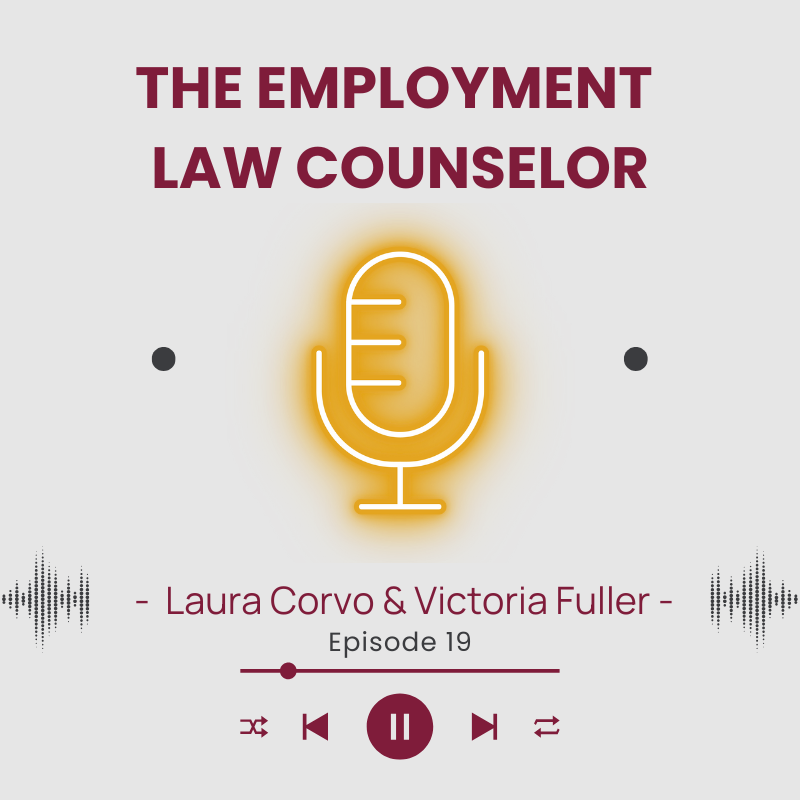January 4, 2022
Clash of the Titans: Religious Rights VS. LGBT Rights

Robert Chadwick is a Partner in the Dallas office of Freeman Mathis & Gary, LLP. He has more than 37 years of experience representing management, fiduciaries and professionals in the areas of labor and employment law, ERISA investigations and litigation, and professional liability. He is Board Certified in Labor & Employment Law by the Texas Board of Legal Specialization.
For some time, a conflict has been brewing between religious traditionalists and LGBT advocates. As more LGBT individuals have opened up about their orientations and identities, religious traditionalists have become more vocal about their beliefs regarding gender and sexuality.
This conflict only intensified with the U.S. Supreme Court opinion in Bostock v. Clayton County, 140 S.Ct. 1731 (2020). In a 6-3 opinion, the Court held that Title VII of the Civil Rights Act of 1964 (Title VII) protects applicants and employees against discrimination because of their sexual orientation and gender identity.
In penning the opinion, Justice Neal Gorsuch, appreciated the religious implications of expanded LGBT rights in the workplace. In this regard, he wrote:
Separately, the employers fear that complying with Title VIIs requirement in cases like ours may require some employers to violate their religious convictions. We are also deeply concerned with preserving the promise of the free exercise of religion enshrined in our Constitution; that guarantee lies at the heart of our pluralistic society.
Battle Plan For Religious Challenges
Justice Gorsuchs opinion in Bostock, in fact, includes a three-prong battle plan for future religious challenges to LGBT claims under Title VII.
I. Title VII Exemption For Religious Organizations
Justice Gorsuch recognized that, in enacting Title VII, Congress included an express statutory exception for religious organizations. This exception applies to a religious corporation, association, educational institution, or society with respect to the employment of individuals of a particular religion to perform work connected with the carrying on by such corporation, association, educational institution, or society of its activities. 42 U.S.C. 2000e-1(a).
II. Religious Freedom Restoration Act
Justice Gorsuch further noted that, because the Religious Freedom Restoration Act (RFRA) operates as a kind of super statute, displacing the normal operation of other federal laws, it might supersede Title VIIs commands in appropriate cases. The RFRA specifically prohibits any agency, department, or official of the United States or any State (the government) from substantially burdening a persons exercise of religion except that the burden to the person: (1) furthers a compelling governmental interest; and (2) is the least restrictive means of furthering that compelling governmental interest. 42 U.S.C. 2000bb-1(b). In Burwell v. Hobby Lobby, Inc., 573 U.S. 682 (2014), the U.S. Supreme Court confirmed the application of the RFRA to owners of closely-held corporations.
III. First Amendment
Citing Hosanna-Tabor Evangelical Lutheran Church and School v. EEOC, 565 U. S. 171, 188 (2012), Justice Gorsuch confirmed the First Amendment to the U.S. Constitution can bar the application of employment discrimination laws to claims concerning the employment relationship between a religious institution and its ministers. The First Amendment states that Congress shall make no law respecting an establishment of religion, or prohibiting the free exercise thereof [emphasis added].
First Battle: Bear Creek Bible Church & Braidwood Management, Inc. v. EEOC
It was not long before Justice Gorsuchs battle plan was put to the test. Bear Creek Bible Church, and Braidwood Management, Inc. (Braidwood), a Christian-owned health care company, sued the Equal Employment Opportunity Commission (EEOC) and its Commissioners in the U.S. District Court for the Northern District of Texas. The suit sought declaratory relief as to whether religious beliefs superseded Bostocks interpretation of Title VII.
The suit by Braidwood is of particular importance to most private employers. Braidwood sought a declaratory judgment that the following policies were not barred by Title VII:
- A policy against employing individuals who are engaged in homosexual behavior or gender-non conforming conduct of any sort; and
- A policy against recognizing same sex marriage or extending benefits to an employees same sex partner.
Cross motions for summary judgment were decided in an October 31, 2021 Memorandum Opinion and Order by U.S. District Court Judge Reed OConnor.
I. Title VII Exemption For Religious Organizations
Braidwood argued that it is a religious organization exempt from Title VII, but Justice OConnor did not buy this argument. He specifically opined: That Braidwood incorporates religious values and practices into its business model is persuasive, but its characteristics taken together do not point to the conclusion that Braidwood is a religious organization for purposes of the Title VII exemption.
II. RFRA
Braidwood also argued the RFRA supersedes Title VII as to the religious beliefs of its owner regarding the conduct of gay or transgender individuals.
Justice OConnor agreed Title VII was a substantial burden to Braidwood because it required it to choose between two untenable alternatives: either (1) violate Title VII and obey their convictions or (2) obey Title VII and violate their convictions. He also found the EEOC had not showed a compelling governmental interest in denying employers like Braidwood a religious exemption. He further said:
But even if their broad formulation of their interest in preventing all forms of discrimination were sufficient, Defendants have not selected the least restrictive means. Forcing a religious employer to hire, retain, and accommodate employees who conduct themselves contrary to the employers views regarding homosexuality and gender identity is not the least restrictive means of promoting that interest, especially when Defendants are willing to make exceptions to Title VII for secular purposes.
Accordingly, Justice OConnor ruled in favor of Braidwood as to its RFRA objections to Title VIIs ban on LGBT discrimination.
III. Free Exercise Clause of First Amendment
As to Braidwood, Justice Connor was not presented with a question which involved the employment relationship between a religious institution and its minsters. Braidwood still argued the Free Exercise Clause of the First Amendment protected it from liability under Title VII for operating in a manner consistent with the religious beliefs of its owner.
Again, Justice OConnor agreed. He disputed the contention that Title VII is a neutral law of general applicability since it is subject to several exceptions for smaller employers (less than 15 employees) and employers on or near Indian reservations. In this regard, he explained:
The Court does not doubt that Defendants interests in preventing discrimination against homosexual and transgender individuals is a weighty one, for our society has come to the recognition that gay persons and gay couples cannot be treated as social outcasts or as inferior in dignity and worth. [citation omitted]. But broadly formulated government interests are not sufficient to withstand a First Amendment challenge. The creation of a system of exceptions under Title VII undermines Defendants contention that non-discrimination policies can brook no departures. [citations omitted]. Defendants offer no compelling reason why it has a particular interest in denying an exception to [the Religious Business-Type Employers] while making them available to others [citation omitted].’
For these reasons, Justice OConnor ruled in favor of Braidwood as to its free exercise objections to Title VIIs LGBT prohibitions.
IV. Freedom of Association Under First Amendment
In Roberts v. U.S. Jaycees, 468 U.S. 609, 622 (1984), the U.S. Supreme Court observed that implicit in the right to engage in activities protected by the First Amendment is a corresponding right to associate with others in pursuit of a wide variety of political, social, economic, educational, religious, and cultural ends. Also, freedom of association plainly presupposes a freedom not to associate. Boy Scouts of America v. Dale, 530 U.S. 640, 647-48 (2000). The Supreme Court thus concluded that the forced inclusion of a gay-rights as an assistant scout master would impair the expressive association rights of the Boy Scouts the values of which are inconsistent with homosexual conduct.
Although Justice Gorsuch’s battle plan did not include a freedom of association challenge, Braidwood nevertheless argued that its freedom of association would be violated if forced to hire or retain individuals who engage in homosexual or transgender conduct. Again, Justice OConnor agreed. He found Braidwood has documented and publicly expressed their opposition to homosexuality and transgender conduct. He also opined:
For the same reasons that Defendants do not have a compelling state interest in forcing an organization to retain, as a scoutmaster, a member who is a gay rights activist, Defendants do not have a compelling interest in forcing Religious Business Type Employers to hire and retain individuals that engage in conduct that is contrary to the employers’ expressive interests. The Government can no more force an association that opposes homosexuality or transgender behavior to hire individuals engaged in that conduct than it can force a gay-rights organization to hire an avowed opponent of homosexuality.
Justice OConnor thus ruled in favor of Braidwood as to its freedom of association objections to Title VIIs LGBT proscriptions.
Future Battles
As with any case of first impression, the Northern District of Texas decision is likely to draw tremendous scrutiny not only as to the analysis employed by Justice OConnor, but also as to the failures of the EEOC in not presenting a stronger defense. This much is certain; the decision will not be the last word in the clash between religious rights and LGBT rights in the workplace. It will likely be up to the Supreme Court to rule on many of the issues in this decision.
News Type
PLUS Blog
Business Line
Employment Practices Liability (EPL)
Topic
Professional Liability (PL) Insurance
Contribute to
PLUS Blog
Contribute your thoughts to the PLUS Membership consisting of 45,000+ Professional Liability Practitioners.
Related Podcasts

The Employment Law Counselor Episode 19
Reductions in Risk for Reductions in Force In this episode of The…
Related Articles

Navigating EPL Trends Across North America: Key Risks and Insights for 2025 Webinar Recap
Employment Practices Liability (EPL) risks are becoming increasingly complex as workplace norms…

Mitigating the Risks of Reductions in Force: Lessons from The Employment Law Counselor
In the latest episode of The Employment Law Counselor, hosts Victoria Fuller…

Employment Discrimination and Retaliation – Best Practices to Avoid Headaches
There is little doubt that an employment-discrimination lawsuit is an unsettling experience…
